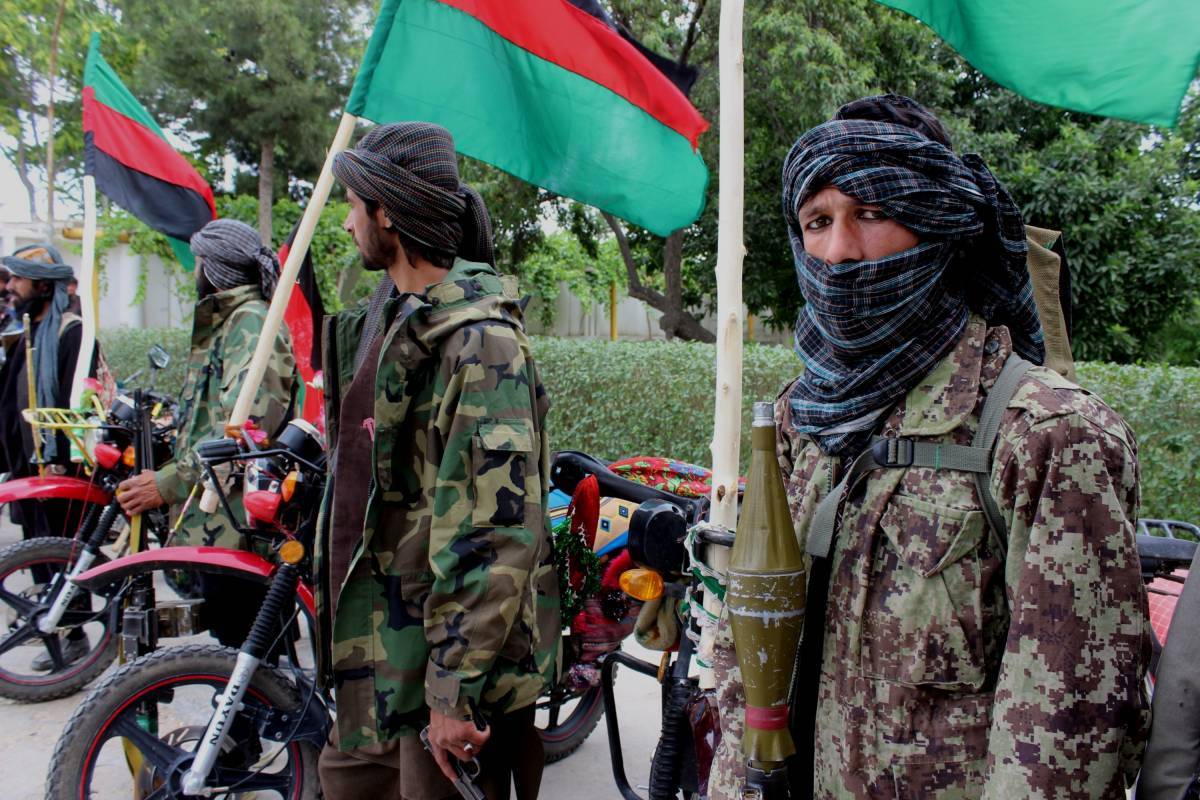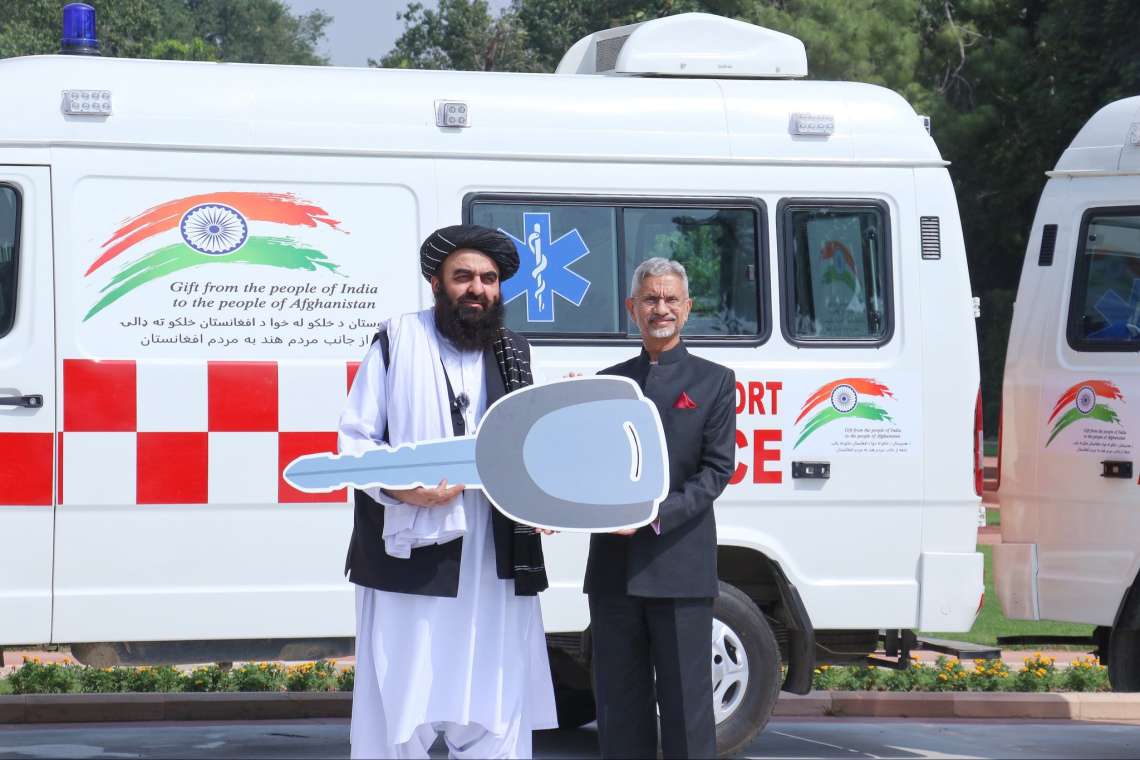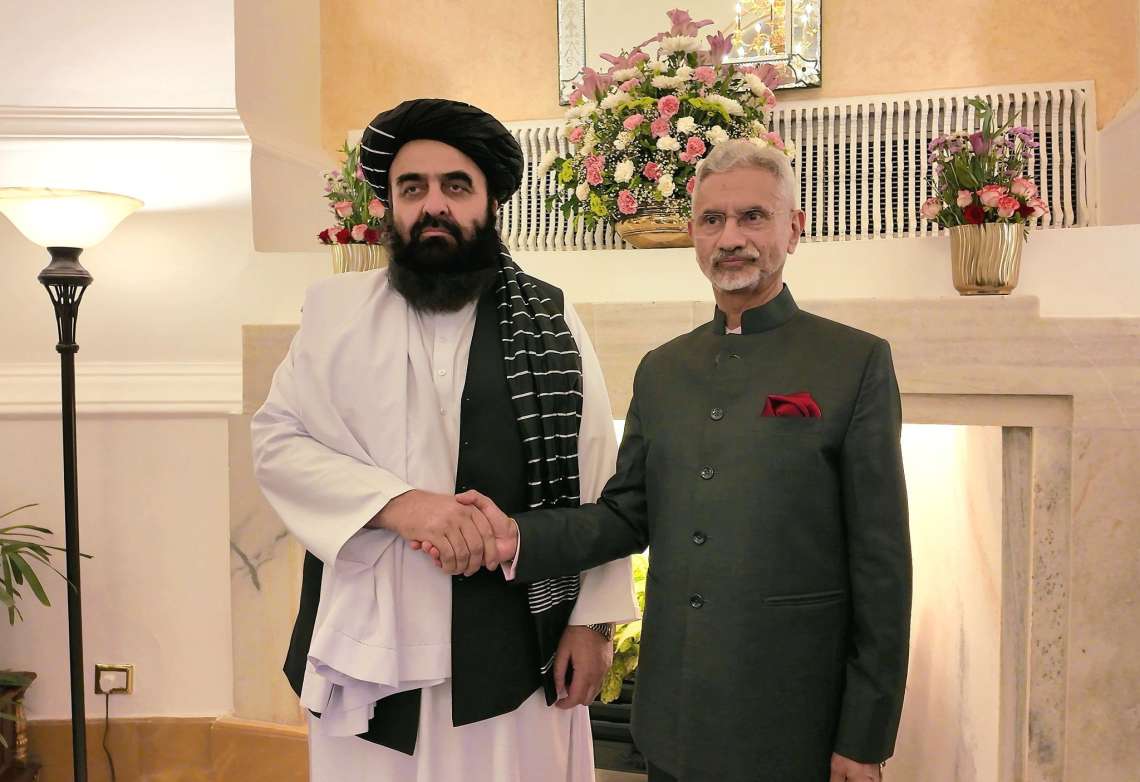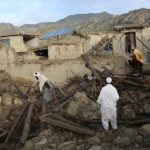Talking about Imran Khan recent visit to Tajikistan, he said, “It is a tiny country. But they’ve taken an issue because the Tajiks have been driven out of power and they said we don’t have enough representation of Tajiks.”…reports Asian Lite News
Malaiz Daud, formerly Chief of Staff of Afghanistan’s former President Ashraf Ghani, has predicted that the Taliban will not last beyond two years and they are losing their hold on the country right now as the crisis deepens in the war-torn country.
In an interview with European Foundation for South Asian Studies (EFSAS) on Thursday, Daud said, “It would just be just a matter of time… people like me predict Taliban will not last beyond two years. All the Taliban observers– they don’t even give six months. They are losing the country right now. People dying of hunger on the streets, young children being sold by their parents, a girl was sold for USD 500 yesterday. Anyone who’s joining ISIS will get USD 500. You join ISIS and then you fight against the Taliban.”
The humanitarian crisis in Afghanistan has deteriorated ever since the Taliban took control of Kabul in August.
The UN agencies have warned that the humanitarian crisis in Afghanistan is worsening, and funding for emergency aid is urgently needed to help 20 million people there. Afghanistan has suffered decades of conflict and displacement, as well as chronic poverty, severe drought, and now the COVID-19 pandemic.

Daud, Research Fellow at Barcelona Centre for International Affairs and Research Fellow at EFSAS also discussed a range of issues pertaining to South Asia in general and Afghanistan in particular, including the Taliban, the Pakistani military establishment, role of regional players and prospects for the future.
Talking about the Taliban defeating the Unites States, he said, “We don’t have state institutions in Afghanistan. When it comes to the Soviets, they partnered with a movement, but the leftist movement and the movement continued mobilization, despite the fact that they killed each other, despite the fact that there were so many divisions, but even the smallest part that remained after 1989, they continued mobilization, they continue mobilizing support.”
“Taliban continue the mobilization and the literature on social movements. This is the key to insurgencies. This is key, you continue mobilizing. Now we know that the 300,000 nominal figure that was given to us of the Afghan security forces, we didn’t even have 50,000 security forces. And these 50,000 they’re just mercenaries, people coming in, because they have no other vocation, and they just fight,” he added.
Talking about Imran Khan recent visit to Tajikistan, he said, “It is a tiny country. But they’ve taken an issue because the Tajiks have been driven out of power and they said we don’t have enough representation of Tajiks.”
“Khan understands that you use the space for resource mobilisation and I’ve seen him do a presentation on resource mobilisation, for the social movements, and for the political opportunity and constraints structure. And if you look at the literature of the social movements, these are the key. The moment you’re pressed in one physical space, like in the case of Afghanistan, we kept pressing Taliban here, but they would go out to Pakistan. They have their medical services there. They have their businesses if they have companies that are more invested in Pakistan than they are in Afghanistan. The land that they have their businesses, they will never give up those for Afghanistan,” Daud said.
Referring to Sudan’s military takeover, he said, “In Sudan military takes over, you have the counter mobilisation. We don’t have the counter mobilisation in Afghanistan.”
As a number of women throughout Afghanistan have held several protests in Kabul against the Taliban, Daud said that “the women who are on the streets right now, they are doing the job right now. This has created a dilemma for the Taliban. Taliban has never faced anything like this.”
The Taliban took over Afghanistan in August and the US military ended its 20 years of military presence in the country.
Meanwhile, women in Kabul protested against the Taliban over the closure of schools for girls and slammed the international community for their inaction about what is going on in Afghanistan.
The activists protesting throughout Afghanistan also called on the Taliban to ensure basic rights, representational government, and municipal authorities. (ANI)














